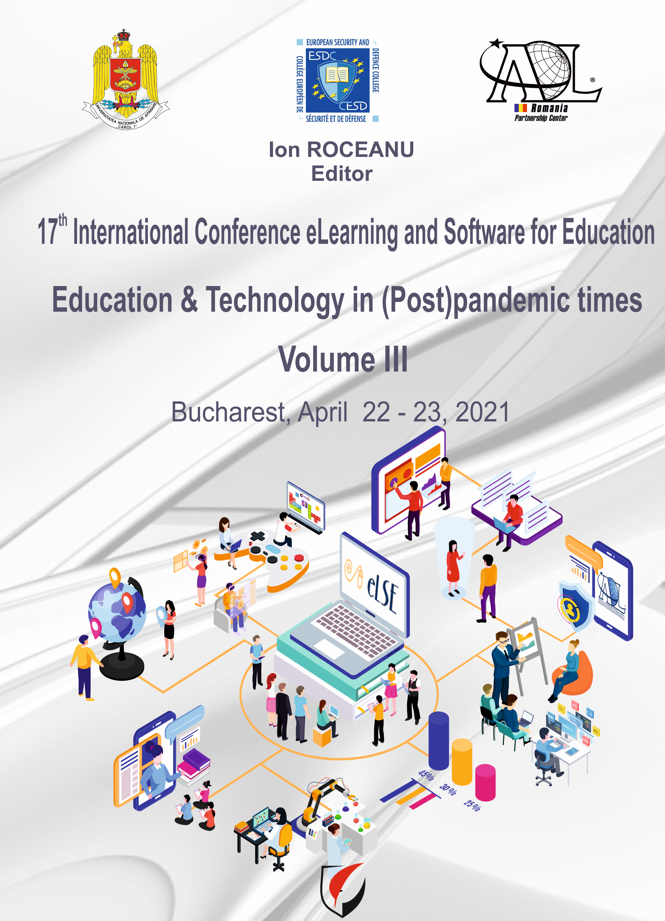E-LEARNING INSTRUMENTS FOR DESIGN BASED LEARNING IN TEXTILES
E-LEARNING INSTRUMENTS FOR DESIGN BASED LEARNING IN TEXTILES
Author(s): Ion Răzvan Rădulescu, Emilia Vişileanu, Carmen Ghițuleasa, Luis Almeida, Benny Malengier, Zoran Stjepanovic, Mirela Blaga, Petra DufkovaSubject(s): Visual Arts, ICT Information and Communications Technologies, Distance learning / e-learning
Published by: Carol I National Defence University Publishing House
Keywords: smart textiles; STEM; design; software; gamification; e-learning;
Summary/Abstract: Design Based Learning (DBL) is a modern concept of education for technical disciplines. The learner starts the educational process from end-user applications and understands theory by conceiving projects and solving real-life situations. In connection with Problem Based Learning and Project Based Learning, DBL is used to improve collaboration and communication skills between team members and to foster deeper learning. Two e-learning instruments have been conceived to support DBL. The concept of the first instrument links STEM disciplines with smart textiles prototypes within 56 educational modules in two approaches: from theory to practice (STEM to Smart) and from practice to theory (Smart to STEM). The modules are structured on seven chapters related to the manufacturing chain of smart textiles: fibres and yarns, materials and methods, virtual models, design prototypes, manufacture prototypes, data processing and testing. Each of these chapters includes four STEM basic disciplines: Mathematics, Physics, Chemistry/material science and Electro-Technics. The instrument consists of a filter programmed in PHP for selection of the desired module. The second instrument presents 5 modules of textile design software tools in a four elements structure: Example, Theory behind the example, Software application and Quiz, for five themes: weaving, knitting, virtual prototyping of clothing, embroidery and experimental design. This instrument includes a navigation button programmed in HTML5. Both instruments support DBL due to their practice- centred and gamification approach. The instruments were performed with support of two Erasmus+ projects: Skills4Smartex (2018-2020) and the ongoing OptimTex (2020-2022). The impact achieved during pandemic restrictions by the e-learning instruments is further presented in the paper.
Journal: Conference proceedings of »eLearning and Software for Education« (eLSE)
- Issue Year: 17/2021
- Issue No: 03
- Page Range: 171-178
- Page Count: 8
- Language: English

